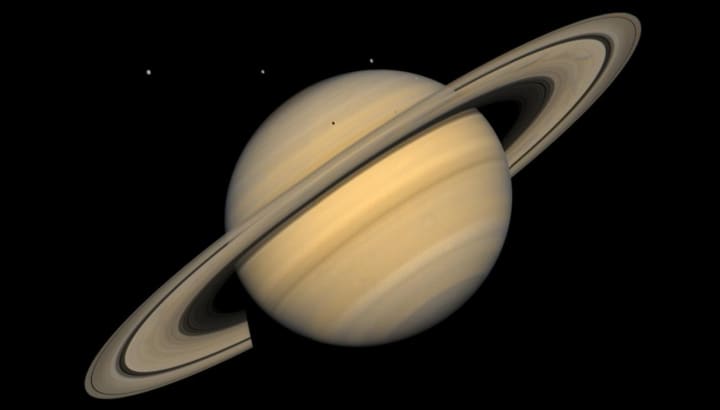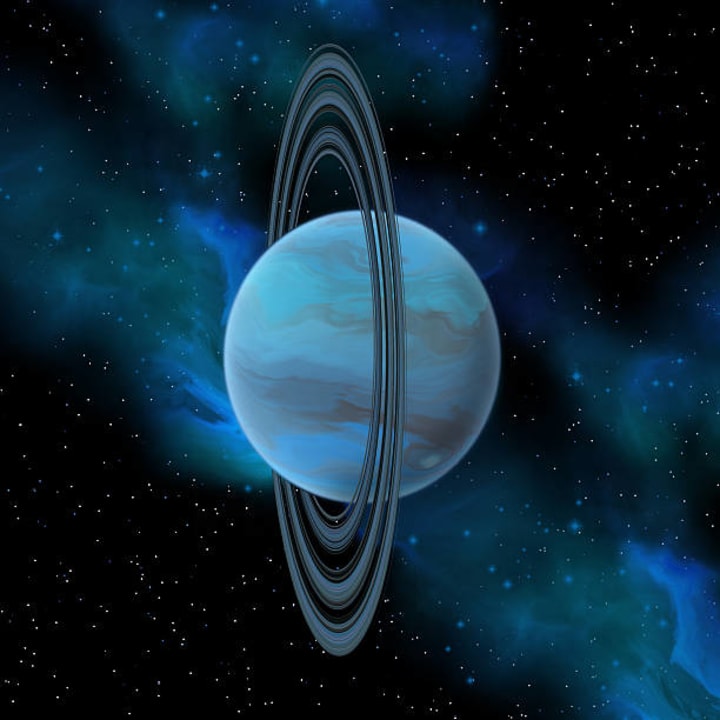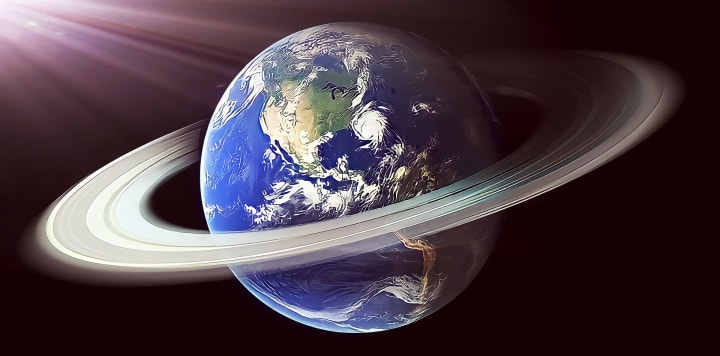What if the earth had rings ?
The four largest planets in the solar system have rings around their equators. But if the earth had also been part of this category of star, what would have been the impact on us?

Rings are the thin-disk-shaped region around a planet, dwarf planet, small body, or natural satellite. They are mainly made up of dust and small particles. 4 planets in the Solar System have rings: Jupiter, Saturn, Uranus and Neptune.
Here's how it happens:
-Particle accretion: The rings are composed of dust, ice, and small debris. When giant planets formed billions of years ago, they accumulated clumps of particles. Some of these clusters were unable to fully aggregate due to disruptive forces, and they ended up forming the rings around these planets
-Moon disintegration: Another theory suggests that the rings may have originated from ancient moons (natural satellites) that were disintegrated by getting too close to their planet. Tidal forces fragmented these moons, creating the rings



It is captivating to envision Earth with rings, similar to Saturn. Here are a few intriguing implications.
Currently, there are numerous space debris orbiting(is defined as any human-made space objects orbiting the Earth that no longer serve any useful purpose) around the Earth. In the future, these debris could potentially form rings, primarily composed of scrap metal.

The idea of Earth having rings, like Saturn, is truly fascinating. Here are some interesting consequences to consider.
Imagining Earth with rings, just like Saturn, is truly mesmerizing. Let's explore some intriguing implications of this concept.

The rings could potentially act as a shield, blocking some of the sun's rays and impacting the climate in specific regions.

Indeed, the concept of planetary rings influencing climate is intriguing! While Saturn’s iconic rings primarily consist of ice particles and rocky debris, their impact on climate would likely be minimal. However, let’s explore this idea further:
Albedo Effect: The rings’ reflective properties (albedo) could alter the amount of sunlight absorbed by the planet. If the rings were more reflective, they might bounce additional sunlight back into space, potentially cooling the planet. Conversely, darker rings would absorb more sunlight, contributing to warming.

Shadowing and Temperature: As the rings cast shadows on Saturn’s surface, localized temperature variations could occur. Areas under the shadow might experience cooler temperatures, while sunlit regions would be warmer. However, these effects would likely be small due to the vast distance between the rings and the planet.
Atmospheric Dynamics: The rings’ gravitational interactions with Saturn could influence atmospheric circulation patterns. However, this impact would be subtle compared to other factors like solar radiation, rotation, and atmospheric composition.
Climate Zones: If the rings were dense and extensive, they might create distinct climate zones on Saturn. Regions near the equator might experience more sunlight due to the rings’ alignment, while polar regions could be cooler.
The reflection of sunlight by the rings would keep the Earth in a gentle twilight, even at night.
The Earth would be enveloped in a soft twilight throughout the night due to the reflection of sunlight by the rings.
In summary, while the idea of planetary rings affecting climate is fascinating, Saturn’s rings likely play a minor role compared to other planetary processes.
In conclusion, the thought of Earth possessing magnificent rings like Saturn sparks an enthralling cascade of implications. From the jaw-dropping visual spectacle to its scientific and exploratory ramifications, the existence of rings around our planet would truly transform our perception of Earth and the cosmos. While this remains a delightful dream for now, it serves as a reminder of the boundless wonders awaiting discovery in the vast abyss of space.
About the Creator
ECO-EXPLORERS
Studying in India opened the doors to a multitude of opportunities for me to deepen my knowledge in this exciting field. With each new discovery, I feel inspired and motivated to contribute to this vision.
Enjoyed the story? Support the Creator.
Subscribe for free to receive all their stories in your feed. You could also pledge your support or give them a one-off tip, letting them know you appreciate their work.






Comments (1)
The subject is fascinating! Great work! 😝